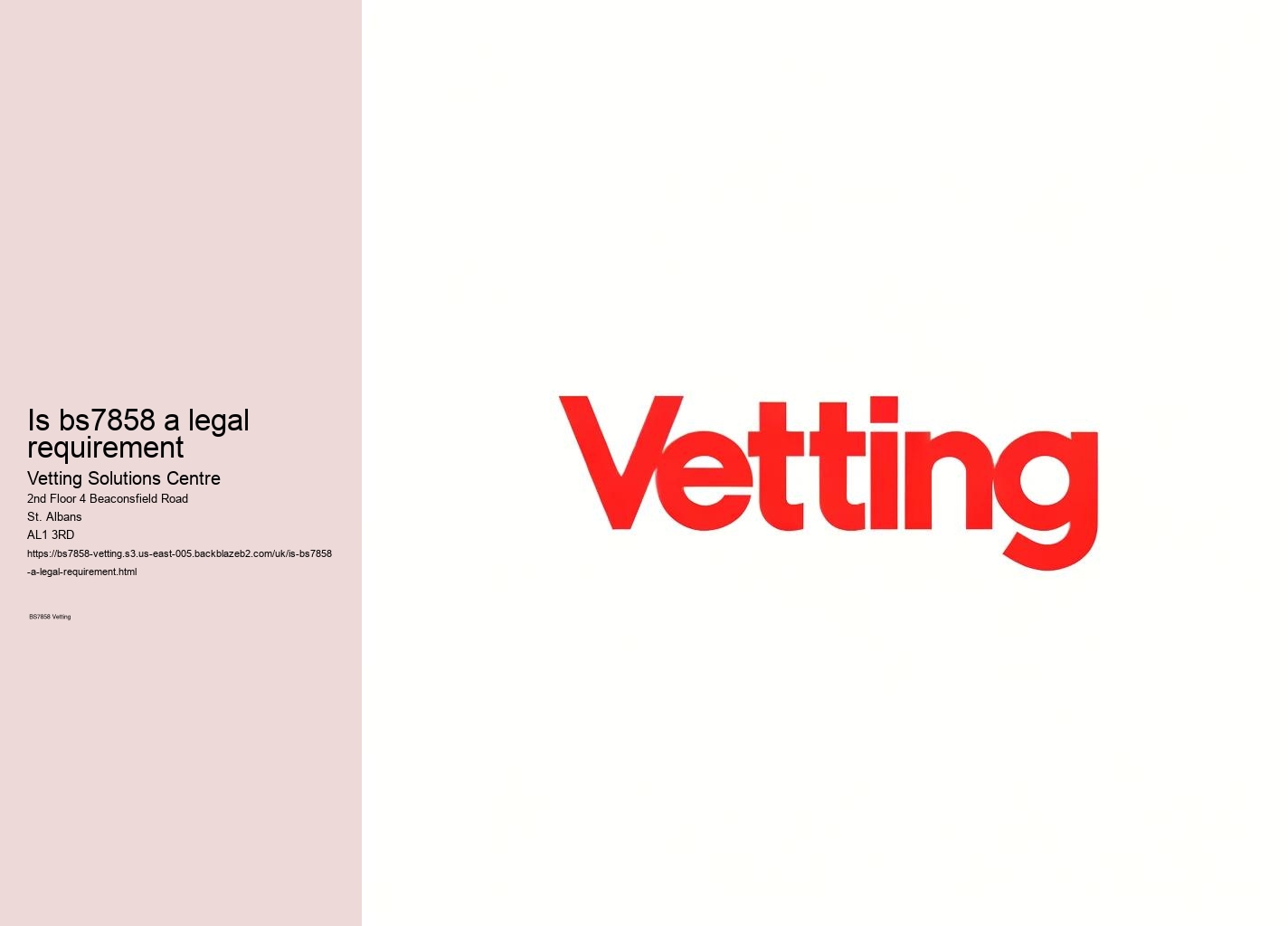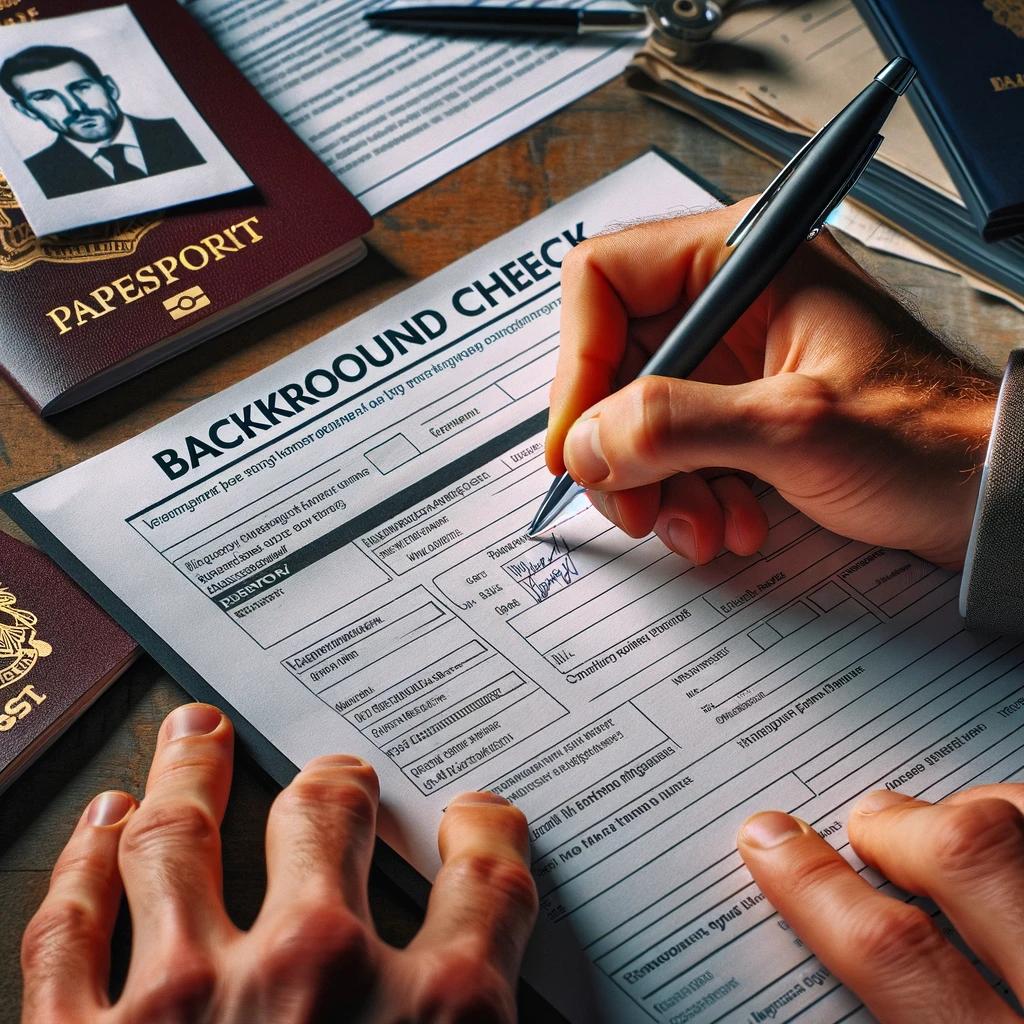

3. Liveness Detection: Advanced IDVT systems include liveness detec-tion to ensure that the individual is present in real-time, preventing fraudsters from using photographs or videos of another person. This might involve movement or blink tests guided by the software.
4. Data Extraction and Analysis: The IDVT system extracts personal data from the ID document (like name, date of birth) and checks this infor-mation against other databases if necessary, such as credit histories or criminal records, as part of a comprehensive vetting process.
How IDVT Helps Speed Up BS7858 Vetting:
• Efficiency: Automates and accelerates the initial steps of the vetting process by quickly verifying identities without the need for manual document checks, reducing the overall time from application to hire.
• Accuracy: Reduces human error in identity verification, ensuring that the individuals are who they claim to be with a high degree of accura-cy.
• Fraud Prevention: Enhances security by using biometric data and liveness detection to prevent identity fraud, ensuring that only verified individuals progress through the vetting process.
• Remote Verification: Allows candidates to complete identity verifica-tion remotely, eliminating delays associated with in-person verifica-tion appointments or mailing documents.
• Integration: Can be easily integrated with other digital vetting tools, creating a seamless workflow that can automatically initiate subse-quent checks (such as criminal background or employment history checks) once identity is verified.
• Compliance and Record-Keeping: Digital record-keeping ensures that all verification steps are logged and auditable, helping organiza-tions comply with BS7858 requirements and data protection regula-tions.


In summary, IDVT significantly streamlines the identity verification step of the BS7858 vetting process, making it faster, more secure, and less prone to errors. This technology not only benefits the organizations conducting the vetting by saving time and resources but also improves the experience for the individuals being vetted by making the process more convenient and accessible.
The name "BS7858:2019" follows the naming conventions used by the British Standards Institution (BSI) for its standards. In this naming scheme:
• "BS" stands for British Standard, indicating that the document is a standard developed by BSI, the national standards body of the United Kingdom.
• "7858" is the unique number assigned to this specific standard, dis-tinguishing it from other standards developed by BSI. Each standard has a unique number that helps in identifying the subject and scope of the standard.
• "2019" indicates the year of the latest revision or publication of the standard. Standards are regularly reviewed and updated to reflect cur-rent best practices, technological advancements, and regulatory re-quirements. The year in the name helps users quickly identify the most current version of the standard.
So, "BS7858:2019" refers to the 2019 version of the British Standard for the security screening of individuals employed in a security environment. This version is the latest update, reflecting the current best practices and re-quirements for vetting individuals in roles where security and trust are par-amount.


Yes, it's possible to fail a BS7858 check. BS7858 is a standard outlining the best practices for security screening of individuals working in a secure envi-ronment or in positions where they handle confidential information. The screening process includes a variety of checks, such as identity verification, criminal record checks, credit history review, employment history verifica-tion, and more, depending on the specific requirements of the standard and the employer's policies.
An individual might fail a BS7858 check for several reasons, including but not limited to:
1. Discrepancies in Identity Verification: If there are inconsistencies or issues verifying an individual's identity against official documents, this could lead to a fail.
2. Adverse Criminal Record: Findings of relevant criminal convictions that are considered incompatible with the role being applied for could result in a fail.
3. Poor Financial History: Significant financial issues, such as a history of bankruptcy or multiple defaults on debts, might raise concerns about an individual's suitability for certain roles.
4. False or Misleading Information: Providing false information or fail-ing to disclose required information during the vetting process can result in a fail.
